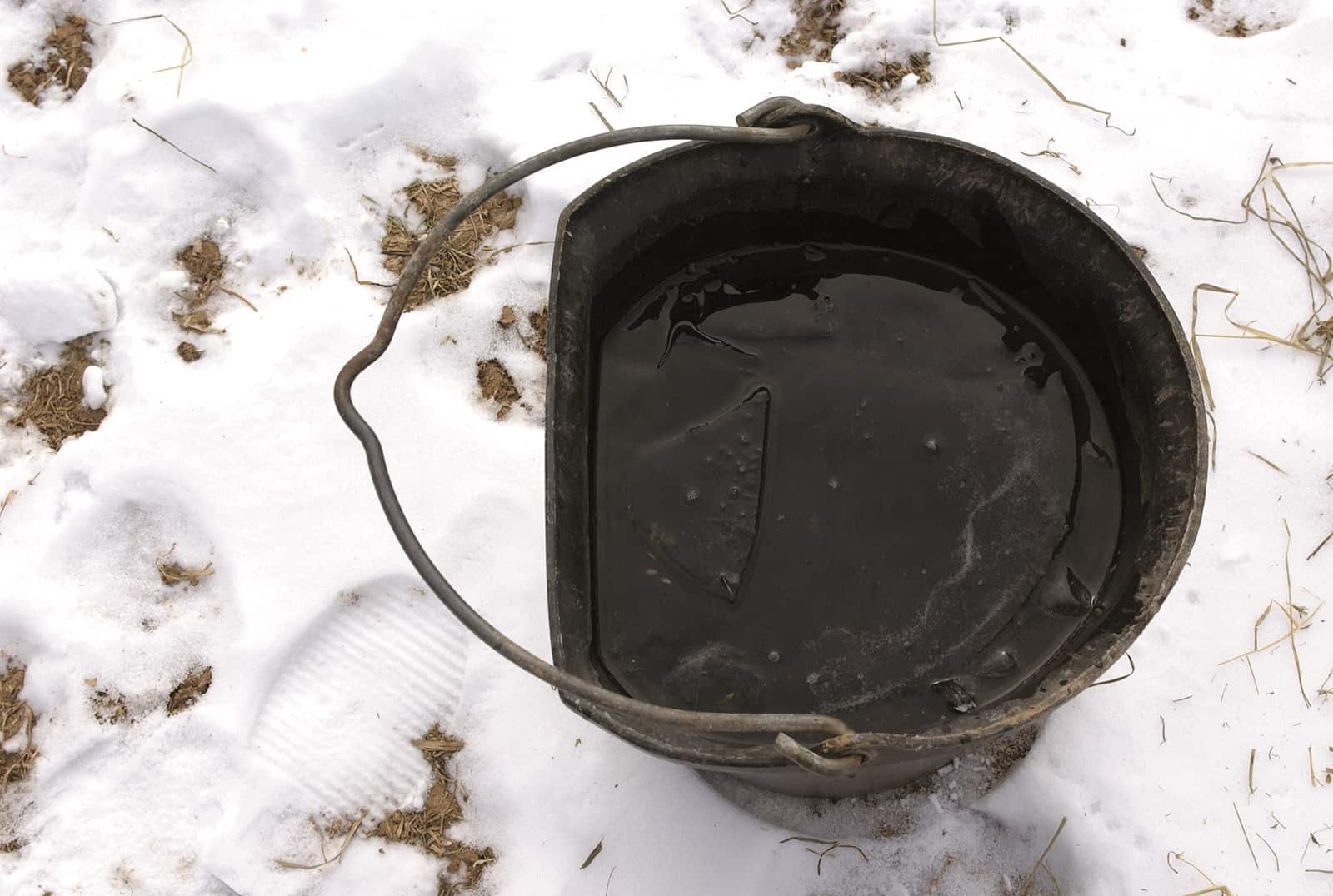[ad_1]

As we head into an extremely chilly stretch of climate for the beginning of winter, there was a lot dialogue on learn how to put together horses. Growing forage consumption to assist maintain core physique temperature heat whereas it ferments within the digestive tract is extremely essential. Additionally contemplate offering blankets and shelter, relying in your horse’s hair coat.
One issue we can’t overlook, nevertheless, is retaining horses hydrated. Most equine nutritionists contemplate water to be an important nutrient due to the assorted capabilities it performs. These embrace regulating physique temperature, digestion, absorption, and utilization of vitamins, transferring feedstuffs by the digestive tract from mouth to rectum, and eradicating waste merchandise.
How A lot Water Does My Horse Want?
On common, the grownup horse drinks roughly 1 gallon per 100 kilos of physique weight; subsequently, the typical 1,000-pound horse wants about 10 gallons of water a day. It is rather essential to ensure horses are consuming sufficient water, particularly when their diets are excessive in dry feed content material, corresponding to hay, to assist make sure the feed is transferring by the digestive system. If horses don’t eat an satisfactory quantity of water, they might change into dehydrated shortly, might go off their feed, and would possibly undergo from impaction colic.
Many horses lower their water consumption beneath required quantities in extraordinarily chilly climate for a wide range of causes, corresponding to not wanting or with the ability to stroll to a water supply, water being too chilly to drink (most well-liked water temperature is between 45 and 65 levels F for many horses), or water being frozen.
Stopping Dehydration This Winter
Horse homeowners and managers can do a number of issues to make sure their horses don’t change into dehydrated:
- If a drop in temperature is predicted, ensure that water is freely out there earlier than the temperature change, so horses are correctly hydrated earlier than the chilly climate hits.
- If scorching water shouldn’t be out there within the barn, get insulated water jugs and produce it from the home. Put money into heated water buckets or a water heater. Make sure that these are grounded, and routinely examine to ensure they’re working correctly. A horse that will get shocked when he tries to drink might be conditioned to not drink!
- Break ice if it types on the water supply, and take away the chunks of ice. Though horses can break by skinny ice, it may deter them from consuming. “Frost-free” sort waterers might be useful, however even these can freeze if horses will not be consuming usually sufficient. Verify water sources for ice not less than twice a day and extra usually in colder circumstances.
- Monitor your horse’s hydration standing every day. In case you have no idea how, ask your veterinarian or one other skilled horse particular person to coach you in doing pores and skin pinch checks and evaluating mucous membranes.
- Soaking feeds could be a technique to get extra water into your horse. For instance, beet pulp is a feed that may maintain quantity of water, and most horses are keen to eat it. Chopped hays additionally take in water and are often willingly consumed by horses. Ideally, soak these dry feeds in heat water for about quarter-hour earlier than providing them to the horse.
Take-House Message
When the temperatures drop, ensure that water is accessible always, and that horses are consuming sufficient. It’s essential to have water out there at mealtimes, particularly when feeding dry feeds; researchers have proven that horses drink essentially the most water inside three hours of consuming a meal. Lastly, fastidiously monitor each water consumption and hydration standing every day, particularly throughout excessive or speedy adjustments within the climate.
[ad_2]
Supply hyperlink
